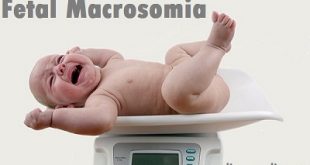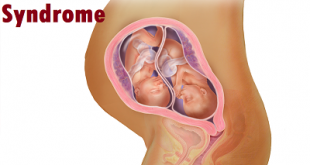Definition Misophonia, also known as the “hatred or dislike of sound,” is characterized by the sensitivity to specific sounds, accompanied by an unpleasant emotional and/or physical response. People with misophonia liken the experience of the sound trigger more closely to irritation, disgust, or even pain, rather than anxiety or fear. …
Read More »Marasmus – Introduction, Risk Factors, and Complications.
Introduction Marasmus is a type of protein-energy malnutrition that can affect anyone but is mainly seen in children. You can get marasmus if you have a severe deficiency of nutrients like calories, proteins, carbohydrates, vitamins, and minerals. It is more common in developing countries, like in some areas of Asia …
Read More »Cachexia – Pathophysiology, Complications, and Treatment.
What is cachexia? Cachexia or wasting syndrome involves a complex change in the body, causing the body to lose weight and muscles. It is a condition characterized by wasting of fat and muscles; cachexia is a complex syndrome that combines weight loss, loss of muscle and fat tissue, anorexia, and …
Read More »Fetal Macrosomia – Causes, Complications and Treatment
Definition Fetal macrosomia is medical condition where a baby is born with more weight and size than usual. In case of this disease, a child might have a birth weight of more than 8 pounds or 4000 grams. About 9 percent of children, worldwide, are born with this syndrome. The …
Read More »Twin to twin transfusion syndrome (TTTS) – Complications and Treatment
Definition Twin to twin transfusion syndrome (TTTS) is a serious condition that occurs in approximately 10 to 15 percent of pregnancies with identical twins that share one placenta, also called a monochorionic-diamniotic twin pregnancy. Blood vessel connections within the placenta allow the fetuses to share blood supply and can cause …
Read More »Polyhydramnios – Complications, Risk Factors and Treatment
Definition Polyhydramnios is an excess accumulation of amniotic fluid – the protective liquid that surrounds the unborn baby in the uterus during pregnancy. The condition occurs in 1 percent to 2 percent of all pregnancies. Polyhydramnios can be an isolated condition (which means no other birth defect or condition occurs …
Read More »Kwashiorkor – Causes, Symptoms, and Diagnosis.
What is kwashiorkor? Kwashiorkor is a type of malnutrition that is most common in areas of drought and famine. It is due to inadequate protein in the diet despite an adequate caloric intake. Symptoms may include irritability and fatigue followed by slowed growth, weight loss, and muscle wasting, generalized swelling, …
Read More »Delayed Sleep Phase Disorder (DSPD) – Causes and Management
Delayed sleep phase disorder – Definition Delayed sleep phase disorder (DSPD) belongs to a group of sleep disorders known as circadian rhythm sleep disorders whereby individuals experience a chronic pattern of sleep disturbance due to changes or misalignment in the circadian timing of their sleep, relative to their social and …
Read More » Diseases Treatments Dictionary This is complete solution to read all diseases treatments Which covers Prevention, Causes, Symptoms, Medical Terms, Drugs, Prescription, Natural Remedies with cures and Treatments. Most of the common diseases were listed in names, split with categories.
Diseases Treatments Dictionary This is complete solution to read all diseases treatments Which covers Prevention, Causes, Symptoms, Medical Terms, Drugs, Prescription, Natural Remedies with cures and Treatments. Most of the common diseases were listed in names, split with categories.








